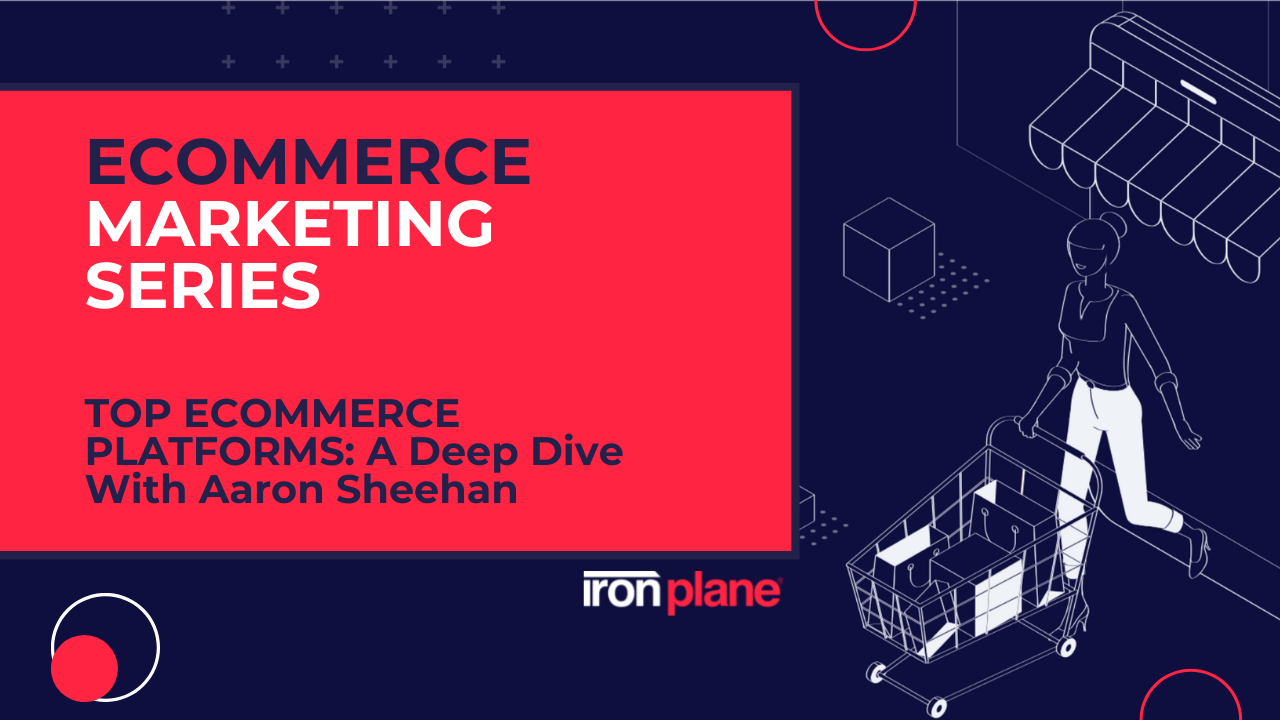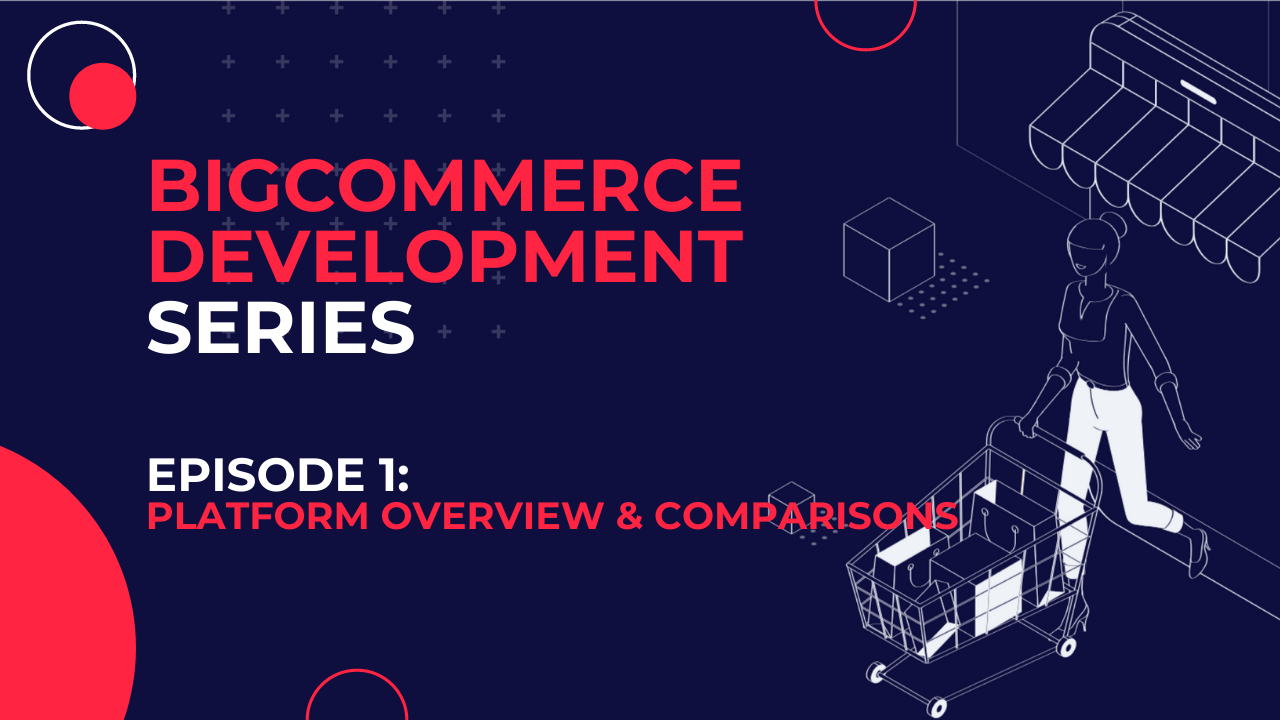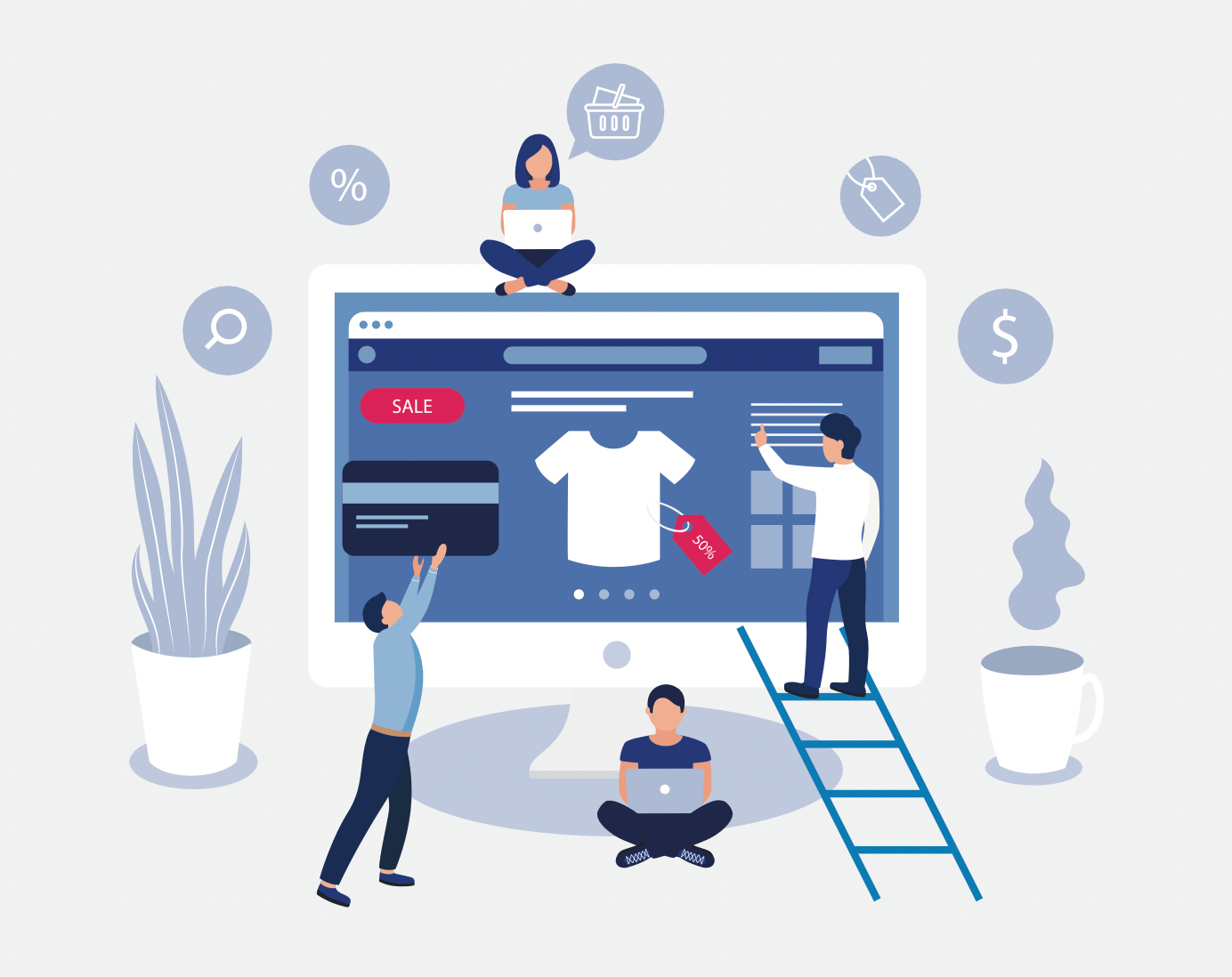What is the Best eCommerce Platform for Automotive Merchants?
We compare Magento, Adobe Commerce, BigCommerce, and Shopify in depth, examining how each caters to automotive eCommerce merchants.
5 min read
 Tim Bucciarelli
:
August 15, 2022
Tim Bucciarelli
:
August 15, 2022

In this episode of Shaping eCommerce, expert Aaron Sheehan from BigCommerce breaks down the key advantages and disadvantages of BigCommerce, Magento, Shopify, and WooCommerce.
Choosing the best eCommerce platform for your business is a challenging process for many merchants.
There are hundreds of eCommerce platforms, each with their own pitch for how they can help you achieve your eCommerce dreams. The decision you make will have wide-ranging financial impacts, including implementation, customization, maintenance, and optimization costs. Operational impacts can include training users and coordinating existing workflows to consider the new platform operations. But most importantly, your eCommerce platform impacts your customers, ultimately helping or hurting your bottom line.
With distinct tradeoffs between all platforms, how do you make the right choice for you?
That’s where our guest Aaron Sheehan comes in. Currently, Aaron is the Director of Competitive Strategy at BigCommerce. But he previously worked at several agencies, helping merchants of all sizes set up their eCommerce stores. We were lucky enough to tap into his vast experience and deep knowledge to round up some of the biggest differences among BigCommerce, Magento, Shopify, and WooCommerce.
In this post, he compares each major platform, explaining what it’s known for and who would benefit most from using it.
Visit the Shaping eCommerce Channel on Youtube to watch our full eCommerce
Marketing Series. We release new content every week, so please
subscribe to our channel and make sure to hit the notification bell!
Before you select an eCommerce platform, it’s important to understand the differences between SaaS and on-prem hosting.
As you may know, SaaS stands for Software-as-a-Service. Just like other SaaS platforms you may use in your daily work routine, eCommerce SaaS vendors are responsible for hosting your site, securing your data, and making feature updates. In return, you pay a recurring fee every month or every year.
On-prem hosting means you are responsible for hosting your eCommerce environment, whether using a physical server (on premises or off premises) or using virtualized servers in a cloud environment such as AWS.
SaaS isn’t necessarily better than on-prem or vice versa. It’s just something to keep in mind when evaluating cost of total ownership.
While there are other eCommerce platforms out there, most people in the industry agree that BigCommerce, Magento, and Shopify are the most popular. However, some folks who rely heavily on Wordpress for their CMS use WooCommerce, so it’s worth mentioning that one, too. Read on to learn about each platform's pros and cons.
BigCommerce is a SaaS-based eCommerce platform designed to serve merchants at every stage of growth. The company has a unique position in the market because it delivers enterprise-grade eCommerce features at a moderate cost.
Is BigCommerce SaaS or On-prem?
SaaS
Pros
BigCommerce’s goal is to reduce the barrier to entry for mid-size businesses to get enterprise-grade functionality. In fact, many merchants start off using the base BigCommerce offering because it offers so much functionality out of the box. On the backend, BigCommerce is constantly updating its feature-set to ensure that its platform supports the growth of even its largest enterprise customers. In addition, BigCommerce is what’s called “open SaaS,” meaning that its platform offers greater opportunity for integration because of its available API connections.
Cons
Although BigCommerce comes with a lot out of the box, like any SaaS platform, you will have more limits on your ability to customize design, integrations, and functionality. Each business should conduct a thorough total cost of ownership analysis due to the different pricing structures of each platform - BigCommerce may not always be the least expensive option.
When eCommerce folks say “Magento,” they could be referring to one of a few different solutions. When Adobe bought Magento back in 2018, it rebranded the enterprise edition known as Magento Commerce as Adobe Commerce powered by Magento. Adobe Commerce comes with a license fee and requires users to host their site using their services or another third party.
Adobe Commerce Cloud is essentially the same as Adobe Commerce powered by Magento but is always hosted by Adobe. The last form of Magento is Magento Open Source, an open-source edition that experienced developers can use to create online stores without paying a license fee for the platform.
For the purposes of this article, we’ll refer to the platform as Magento. No matter what form of Magento you choose, the platform is ideal for enterprise businesses wanting to build eCommerce sites with custom designs, integrations, functionalities, and scalability. Overall, Magento allows for greater freedom to tune the platform to your specific business needs.
Is Magento SaaS or On-prem?
On-prem
Pros
All forms of the Magento platform give mid to large companies extreme flexibility in terms of site design and performance. You can add virtually any extension to your site, making it highly curated to your customers’ wants and needs. Magento is especially good for B2B and B2C businesses with IT teams who have the skills to build and maintain a site. If you opt for Magento Open Source, there is no licensing fee.
Cons
With great flexibility comes great complexity. Magento is really tough for the average IT team to learn and, realistically, you’ll need to hire an agency to help you configure and make periodic updates to the platform. Magento releases are onerous, and you’ll probably need agency assistance to execute those rollouts. Every form of Magento has a hosting cost, and Adobe Commerce and Adobe Commerce Cloud come with a licensing fee.
Shopify distinguishes itself as an all-in-one platform, including both point-of-sale software as well as their own payment processing system. As a result, a majority of Shopify’s revenue comes from payment processing rather than their platform license fees. That revenue has funded an incredibly successful content platform, so Shopify customers are also equipped with the resources they need to build an attractive site.
Is Shopify SaaS or On-prem?
SaaS
Pros
Shopify is fantastic for merchants who want to pay for an all-in-one platform一specifically those with D2C businesses without an existing POS system or payment processor. Merchants willing to pay for extra bells and whistles get value from Shopify.
Cons
One of the biggest downsides to Shopify is that you’re putting all your eggs into one basket. You can’t keep existing deals you might have with a POS provider or payment processor. And on top of that, Shopify can decide to shift its strategy dramatically and no longer offer a particular service. While you’ll likely get at least a 60-day grace period, that’s not very long. You’ll have to research a new platform, negotiate on pricing, migrate your data, and manage customer expectations throughout the process.
WooCommerce is an eCommerce plugin for companies that use Wordpress. Because WooCommerce is open-source and has been around since 2011, its install base is huge.
Is WooCommerce SaaS or On-prem?
On-prem, but they do have a code-managed offering
Pros
If you already use Wordpress, have limited eCommerce needs, and don’t want to switch content management systems, WooCommerce is an excellent way to add buy buttons and checkout pages.
Cons
WooCommerce doesn’t have an extensive feature-set like BigCommerce, Magento, or Shopify. For that reason, I think of WooCommerce almost as “training wheels” for companies introducing an eCommerce site. Typically, I see customers outgrowing WooCommerce and wanting to switch to a new platform. To make that transition easier, BigCommerce has a plug-in to enable the same purchasing behavior and functionality as WooCommerce.
eCommerce platforms will always have advantages and disadvantages. The key is understanding what they are and picking the best platform that suits your unique needs. As you start the platform selection process, be sure to get connected with an experienced agency that will help you understand the more complex differences and how they may impact your eCommerce business and the total cost of ownership.
The selection process usually includes platform demos and detailed discovery questions to help you understand the platform and for the platform provider to understand your business. You can also refer back to each section above to help you make the most informed decision.
If you need help finding that agency mentioned above, contact the experts at IronPlane, an agency with over 12 years of experience in the eCommerce world. We provide exceptional implementation, transition, and maintenance services to B2B and B2C clients at mid-market and enterprise levels.
If you’re not quite ready to take the leap to a new platform but want to keep learning about eCommerce, give us a follow on YouTube, LinkedIn, and on our Shaping eCommerce podcast, where we share informative discussions and interviews with experts in the eCommerce field.

We compare Magento, Adobe Commerce, BigCommerce, and Shopify in depth, examining how each caters to automotive eCommerce merchants.

Is the BigCommerce platform right for your business? In the first episode of our BigCommerce Development Series, Kristin Jordan gives a general overview and discusses the benefits of this scalable platform. Plus, she gives examples of some big brands using Bigcommerce and showcases various platform comparisons.

Deciding between BigCommerce & Magento? Our post explains the differences between each eCommerce solution so you can make an informed decision.